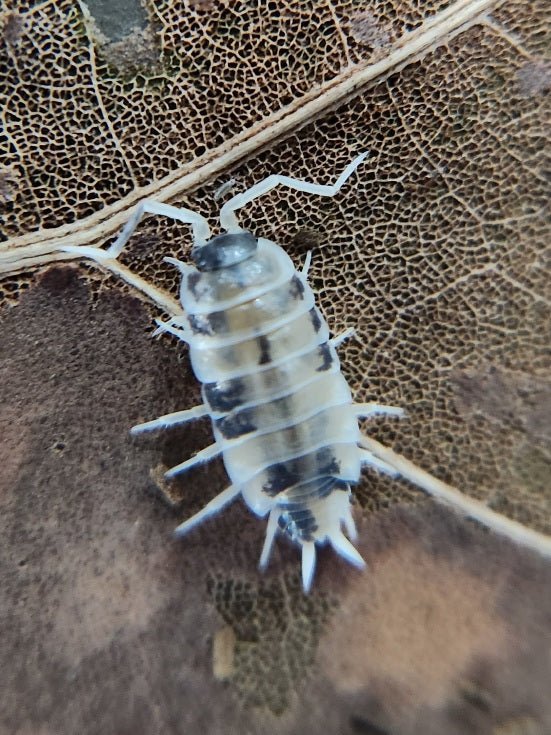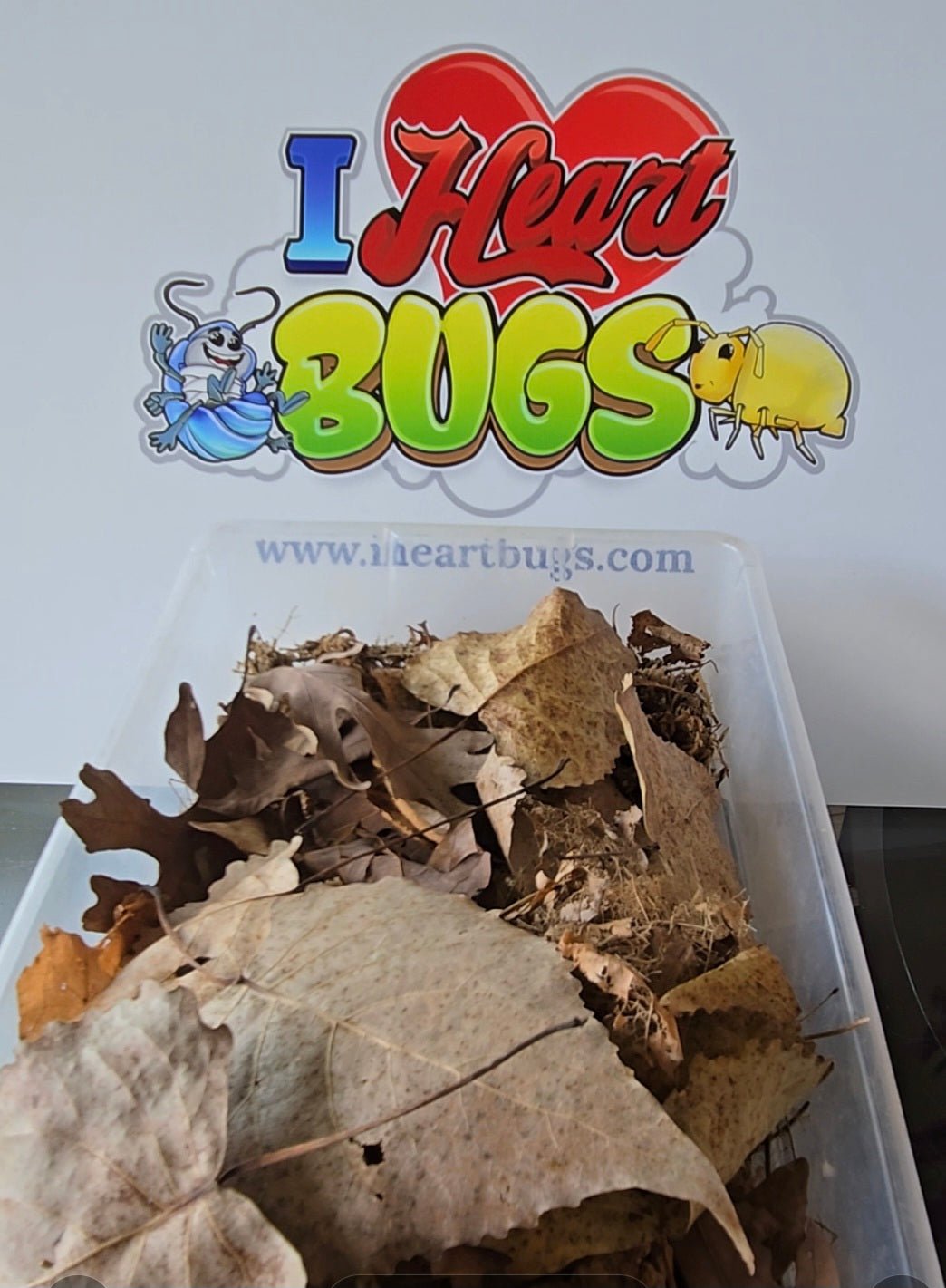Your isopod bin was thriving, and a week later you check on them and the large population has dwindled down to a few isopods. What happened? Can I save the other isopods? Isopod bin crashes have unfortunately happened to all of us at some point. There are a few common problems that cause the isopod colony to crash or seemingly die overnight, so try these suggestions to see if they can help.
1. The bin dried out. All isopods require some moisture. If the moss in the enclosure has dried out completely, the isopods will not be able to survive. Correct this problem by misting the enclosure more frequently, and add some extra damp sphagnum moss.
2. There are not enough leaves. If there are only one or two leaves in the bin, that's not enough. There must be a thick layer of leaves. Leaves are the isopods' main source of nutrition. Correct the problem by adding handfuls of leaves and leaf litter as often as necessary.
3. Not enough ventilation. If too much supplemental food, such as vegetable scraps and protein is provided, and there's very minimal ventilation and cross-ventilation, gasses can build up and cause the colony to not survive. Correct this problem by feeding much less supplemental foods, and also add additional ventilation holes and cross-ventilation holes as necessary.
4. Not enough beneficial bacteria. If your isopod bin has been thriving for months and years, and it has damp moss, a source of calcium such as cuttlebone, a lot of leaves, and good ventilation, it's possible they weren't getting the nutrients they need. This has happened to us. We used to heat treat our wood and leaves that were placed in our bins. Heat treating eliminates the good bacteria that isopods need to thrive. We stopped heat treating several years ago and now we use untreated leaves and wood and our isopods couldn't be healthier and happier.
5. In the event that there is a massive isopod colony crash, it's best to immediately start a new bin with fresh leaves, soil, wood, calcium, and moss, and transfer the living isopods into the new bin. With all of the decay from the isopods that didn't survive, there will most likely be a build up of gas and the others will not survive. Also, when there is an unknown cause of a crash, immediately starting a fresh bin for the survivors, will help greatly so you do not lose the entire colony.



